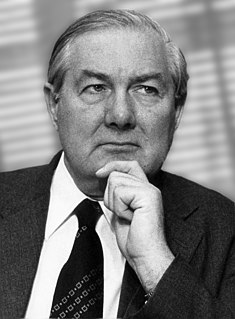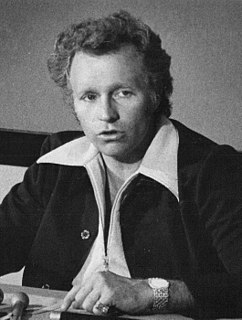A Quote by Margaret Thatcher
(I)t is highly questionable whether when 'Europe speaks with one voice', as we are so often told it is doing, anyone is really listening. Europe's reputation as a serious player in international affairs is unenviable. It is a feeble giant who desperate attempts to be taken seriously are largely risible. It has a weak currency and a sluggish inflexible economy, still much reliant on hidden protectionism. It has a shrinking, ageing, population and, with the exception of Britain, rather unimpressive armed forces and, not excepting Britain, muddled diplomacy.
Quote Topics
Affairs
Ageing
Anyone
Armed
Armed Forces
Attempts
Britain
Currency
Desperate
Diplomacy
Doing
Economy
Europe
Exception
Feeble
Forces
Giant
Hidden
Highly
Inflexible
International
International Affairs
Largely
Listening
Much
Often
Player
Population
Protectionism
Questionable
Rather
Really
Reputation
Serious
Seriously
Shrinking
Sluggish
Speaks
Still
Taken
Voice
Weak
Whether
Related Quotes
There can be no halfway house, where Britain continues to be out of Europe in name but is still run by Europe. There can be no halfway house when it comes to rule-taking and law-making from the E.U., and there is an overwhelming sense of frustration that Britain is being taken advantage of by the E.U.
It had the effect of cementing the Anglo-American alliance. What's the good of having bases if when you want to use them you're not allowed to by the home country. It made America realise that Britain was her real and true friend, when they were hard up against it and wanted something, and that no one else in Europe was. They're a weak lot, some of them in Europe you know. Weak. Feeble.
If Britain doesn't stay in the Single Market or Customs Union, we are very much in favor of a free trade agreement between the U.K. and Europe. We don't want Britain to be punished for its decision to leave, and it is not in our interests for Britain to be punished because we may be the ones who lose out as much if not more than them.
At the moment we are hard-wired into the European markets - 50% of our exports go to Europe - and that has not been good for the UK. So I'm not saying "make Britain entirely dependent on China". I'm saying "let's diversify a bit". When I became chancellor, China was our ninth largest trading partner. This is the world's second biggest economy. China was doing more business with Belgium than it was with Britain.
It is one of history's most mocking ironies that the German customs union, which set out to dominate Europe and conquer Britain in the form of Bismarckian or Hitlerian military force, has at last vanquished the victor by drawing Britain into a Zollverein which comprises Western Europe and aspires to comprise the Mediterranean as well. If the ghosts of the Hohenzollerns come back to haunt this planet, they must find a lot to laugh at.
'A Naval History of Britain' which begins in the 7th century has to explain what it means by Britain. My meaning is simply the British Isles as a whole, but not any particular nation or state or our own day... 'Britain' is not a perfect word for this purpose, but 'Britain and Ireland' would be both cumbersome and misleading, implying an equality of treatment which is not possible. Ireland and the Irish figure often in this book, but Irish naval history, in the sense of the history of Irish fleets, is largely a history of what might have been rather than what actually happened.
Less and less is the question being asked as to whether developments are taking place in a democratic and free way. Europe is in a phase in which this output is no longer sufficiently visible or tangible. Youth unemployment is still far too high, we still haven't solved our currency problem and living conditions in Europe are drifting apart. That is one reason why critics say that our Europe is based on yesteryear's model.









































